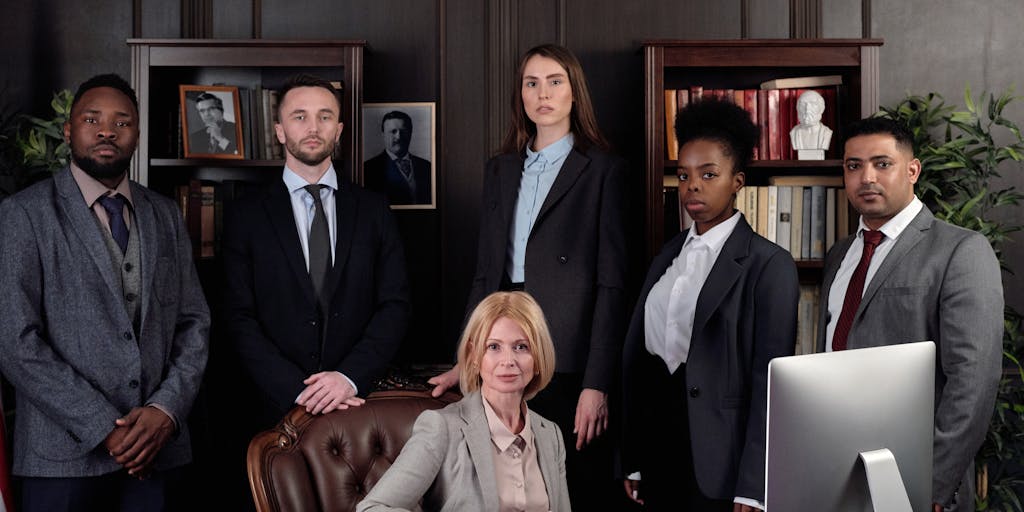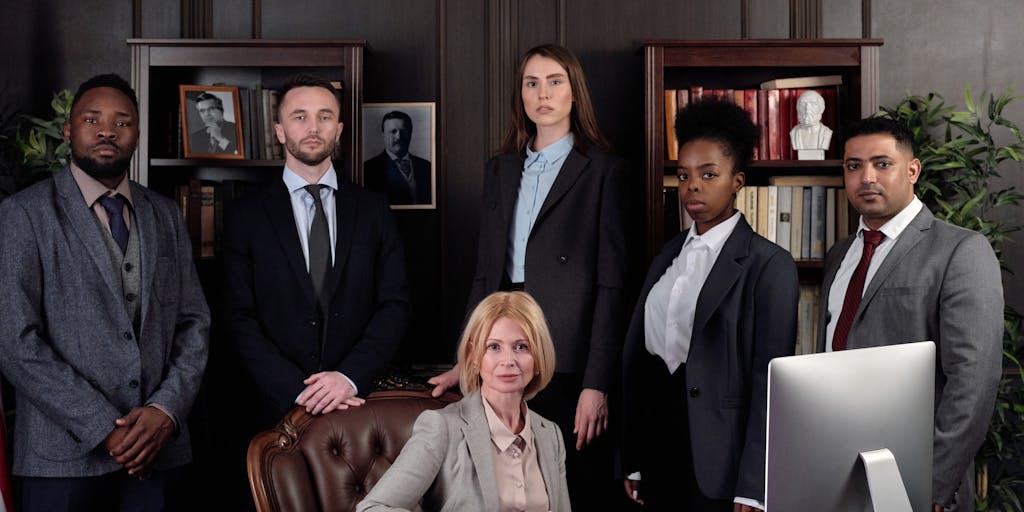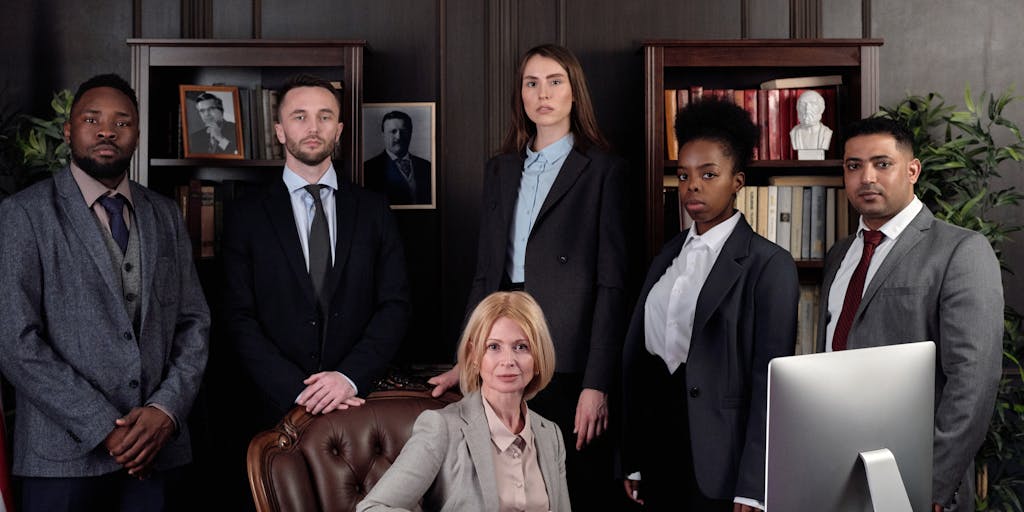Non-compete agreements are common contractual arrangements used by employers to protect their business interests, trade secrets, and competitive advantage. These agreements prohibit employees from working for competing firms or starting their own competing businesses for a specified period after their employment ends. Violating a non-compete agreement can have significant legal and financial consequences. In this article, we will explore what it means to violate a non-compete agreement, the elements of such agreements, and the potential outcomes for those who breach them.
What is a Non-Compete Agreement?
A non-compete agreement, also known as a covenant not to compete or a non-compete clause, is a legally binding contract between an employer and an employee. Its primary purpose is to restrict the employee from engaging in competitive activities that could harm the employer’s business interests. Key elements of a non-compete agreement include:
- Scope: The agreement defines the geographic area, industry, or specific competitors the employee is prohibited from working for or with after leaving the company.
- Duration: It specifies the length of time during which the non-compete restriction will be in effect. This can vary widely, from a few months to several years.
- Consideration: The employee typically receives something in return for agreeing to the non-compete, such as employment, training, access to confidential information, or compensation.
- Legitimate Business Interest: The agreement must be based on a legitimate business interest, such as protecting trade secrets, client relationships, or goodwill.
What Does It Mean to Violate a Non-Compete Agreement?
Violating a non-compete agreement means that an employee has breached the terms and conditions set forth in the contract. This can occur in various ways, such as:
- Working for a Competing Company: If an employee joins a competing company or starts a competing business within the restricted geographic area or industry specified in the agreement, they are violating the non-compete.
- Soliciting Clients or Employees: Some agreements may include non-solicitation clauses that prevent employees from approaching clients or colleagues from their former employer.
- Sharing Confidential Information: Breaching confidentiality obligations by disclosing or using the former employer’s trade secrets or proprietary information for competitive purposes can also constitute a violation.
Consequences of Violating a Non-Compete Agreement
The consequences of violating a non-compete agreement can be severe and may include:
- Injunction: Courts may issue injunctions to prevent the employee from engaging in competitive activities, effectively stopping them from working for a competing company.
- Damages: The employee may be liable for monetary damages, which can include compensatory damages to cover the employer’s losses and even punitive damages in cases of willful violation.
- Attorney’s Fees: The losing party in a legal dispute over a non-compete agreement may be required to pay the prevailing party’s attorney’s fees.
- Loss of Reputation: Violating a non-compete agreement can damage an individual’s professional reputation and make it difficult to find employment in the industry.
Expert Opinions and Legal Precedents
Legal experts and scholars emphasize the importance of carefully drafting and enforcing non-compete agreements. Attorney Michael Elkon, a specialist in employment law, states, “Non-compete agreements need to be reasonable in scope, duration, and geographic area to be enforceable. Courts tend to scrutinize these agreements closely.”
Legal precedents also offer insights into the consequences of violating non-compete agreements. In the case of IBM v. Papermaster, the court enforced a non-compete agreement, preventing an employee from joining a competing company because it was found to be a reasonable restriction to protect IBM’s legitimate business interests.
Non-compete agreements are essential tools for businesses to safeguard their interests, but violating them can lead to legal and financial repercussions. Understanding the terms and implications of such agreements is vital for both employers and employees. When drafting or enforcing non-compete agreements, it’s essential to consult with legal professionals to ensure they are reasonable, enforceable, and compliant with relevant state laws.
Validity and Remedies for Breach of Non-Compete Agreements
Non-compete agreements are contractual arrangements that restrict employees or former employees from engaging in competitive activities after leaving a company. These agreements serve to protect a business’s legitimate interests, such as trade secrets, customer relationships, and intellectual property. However, for a non-compete agreement to be valid and enforceable, it must meet certain criteria. In this article, we will explore how a non-compete agreement becomes valid, what constitutes a breach of its obligations, and the available remedies when a breach occurs.
How Is a Non-Compete Agreement Valid?
A valid non-compete agreement must adhere to specific criteria to be enforceable:
- Legitimate Business Interest: The agreement must serve a legitimate business interest, such as protecting trade secrets, confidential information, customer relationships, or goodwill. Courts generally disfavor overly broad or unreasonable restrictions.
- Reasonable Scope: The agreement should define the scope of the restriction reasonably. This includes specifying the geographic area, the duration of the restriction, and the types of activities that are prohibited.
- Consideration: The employee must receive something of value in exchange for agreeing to the non-compete, such as employment, access to proprietary information, or additional compensation.
- Non-coercion: The employee must enter into the agreement voluntarily and without coercion. Agreements signed under duress or without proper notice may be deemed unenforceable.
- Compliance with State Law: Non-compete agreements must comply with state-specific laws, which can vary significantly. Some states have stricter requirements for enforcement than others.
Breach of Non-Compete Obligations
A breach of non-compete obligations occurs when an employee or former employee violates the terms of the non-compete agreement. This can take various forms, including:
- Working for a Competing Company: If an employee starts working for a competitor or establishes their own competing business within the restricted geographic area and timeframe, it constitutes a breach.
- Soliciting Clients or Employees: Violating non-solicitation clauses by approaching clients or colleagues from the former employer for competitive purposes is another form of breach.
- Sharing Confidential Information: Disclosing or using the former employer’s trade secrets, proprietary information, or confidential data for competitive gain can also be a breach.
Recourses for Breach of a Non-Compete Agreement
When a breach of a non-compete agreement occurs, several recourses are available:
- Injunction: Courts can issue injunctions to prevent the breaching party from engaging in competitive activities. This effectively restrains them from working for a competing company or conducting business in violation of the agreement.
- Monetary Damages: The breaching party may be liable for monetary damages, which can include compensatory damages to cover the employer’s losses, and in some cases, punitive damages in situations of willful violation.
- Specific Performance: In rare cases, a court may order specific performance, compelling the breaching party to fulfill their contractual obligations as outlined in the non-compete agreement.
- Attorney’s Fees: Depending on the terms of the agreement and state law, the prevailing party in a legal dispute over a non-compete agreement may be entitled to recover their attorney’s fees.
Expert Opinions and Legal Precedents
Legal experts emphasize the importance of drafting non-compete agreements that are reasonable in scope and duration. Attorney Sarah Lee, specializing in employment law, advises, “Non-compete agreements should be carefully tailored to protect legitimate business interests without unduly burdening employees.”
Legal precedents also provide insights into remedies for breach. In the case of IBM v. Papermaster, the court enforced a non-compete agreement, preventing an employee from joining a competing company because it was found to be a reasonable restriction to protect IBM’s legitimate business interests.
Non-compete agreements are valuable tools for businesses to safeguard their interests, but they must meet specific criteria to be valid and enforceable. When a breach occurs, employers have various remedies at their disposal, including injunctions, monetary damages, and specific performance orders. It’s essential for both employers and employees to understand the terms and implications of non-compete agreements and, if needed, consult legal professionals to ensure compliance with applicable state laws.
Mitigate Damages, Cease and Desist Letters, and Monetary Damages: Legal Strategies and Implications
In legal disputes, particularly in cases of contract breaches or civil wrongs, parties involved often pursue remedies to address the harm they have suffered. This article explores three crucial components of legal strategies in such situations: mitigating damages, sending cease and desist letters, and seeking monetary damages. We will discuss the meaning and significance of each, along with relevant examples and expert insights.
Mitigate Damages
Mitigating damages is a fundamental principle in law that requires a party who has suffered harm due to the actions of another party to take reasonable steps to minimize or mitigate those damages. Failing to do so can limit the damages recoverable in a legal claim. Key aspects of mitigating damages include:
- Reasonable Efforts: The party harmed must make reasonable efforts to limit the extent of the damage. This might involve seeking alternative employment, repairing property, or securing substitute goods or services.
- Duty to Mitigate: The principle of mitigation applies to both plaintiffs and defendants. Plaintiffs have a duty to mitigate their losses, while defendants should not exacerbate the plaintiff’s damages.
- Impact on Damages Award: A failure to mitigate damages can result in a reduced damages award. The court may calculate damages based on what the losses would have been had mitigation efforts been made.
Example: If an employee is wrongfully terminated and has difficulty finding a new job, they must actively seek employment to mitigate their lost income.
Cease and Desist Letter
A cease and desist letter is a formal written communication sent to an individual or entity that is engaging in actions perceived as harmful, unlawful, or in violation of the sender’s rights. This letter serves several purposes:
- Demand for Cessation: It demands that the recipient immediately cease the specified activities, such as harassment, copyright infringement, or contract breaches.
- Legal Warning: It serves as a legal warning that if the recipient does not comply, the sender may pursue legal action, including seeking damages or injunctive relief.
- Documentation: It creates a record of the sender’s efforts to resolve the matter amicably before resorting to litigation.
Example: A photographer sends a cease and desist letter to a website that has been using their copyrighted images without permission, demanding the removal of the images and cessation of further infringement.
Monetary Damages
Monetary damages, also known as compensatory damages, are a common form of legal remedy awarded to compensate a plaintiff for losses suffered as a result of a defendant’s actions. These damages aim to restore the plaintiff to the financial position they would have been in had the wrongful act not occurred. Key points regarding monetary damages include:
- Types of Damages: Compensatory damages can encompass various categories, such as economic damages (lost wages, medical expenses), non-economic damages (pain and suffering), and punitive damages (awarded to punish the defendant).
- Measuring Damages: Calculating damages can be complex and may require expert testimony or evidence. Courts consider factors like the severity of harm, foreseeability, and causation.
- Legal Standard: To recover monetary damages, a plaintiff typically needs to prove that the defendant’s actions were the proximate cause of the harm and that the damages are reasonably quantifiable.
Example: In a personal injury lawsuit, a plaintiff may seek monetary damages to cover medical bills, lost wages, and pain and suffering resulting from a car accident caused by the defendant’s negligence.
Expert Opinions and Legal Precedents
Legal experts emphasize the importance of diligently mitigating damages when harm occurs. Attorney Lisa M. Lilyquist notes, “Failure to mitigate can significantly impact the outcome of a legal claim, and courts generally expect parties to act reasonably in limiting their losses.”
Regarding cease and desist letters, experienced litigator John B. Smith advises, “These letters can be an effective tool to resolve disputes without going to court. They send a clear message to the recipient while giving them an opportunity to rectify the situation.”
Monetary damages are a fundamental aspect of civil litigation. In the landmark case of Hadley v. Baxendale, the court established the principle that damages must be foreseeable and directly related to the breach of contract.
Mitigating damages, sending cease and desist letters, and seeking monetary damages are essential components of legal strategies when addressing harm or wrongdoing. Parties involved in legal disputes should understand these concepts, their significance, and how they can be employed to protect their rights and interests. Legal advice and guidance from professionals are often critical in navigating these complex aspects of the legal system.
Compensatory Damages, Punitive Damages, and Liquidated Damages: Understanding Legal Remedies
In legal disputes, various types of damages can be awarded to compensate for harm, deter wrongful conduct, or provide certainty in contractual agreements. This article delves into three significant categories of damages: compensatory damages, punitive damages, and liquidated damages. We will explore their definitions, purposes, and real-world examples to shed light on their roles in the legal landscape.
Compensatory Damages
Compensatory damages, often referred to as actual or direct damages, are the most common form of damages awarded in civil cases. These damages aim to reimburse the injured party for losses incurred as a direct result of the defendant’s actions or breach of contract. Key aspects of compensatory damages include:
- Economic and Non-Economic Losses: Compensatory damages can encompass both economic losses, such as medical bills or lost wages, and non-economic losses, including pain and suffering.
- Measurable and Quantifiable: Courts typically award compensatory damages when the harm is measurable and quantifiable. These damages aim to put the injured party in the position they would have been in if the wrongful act had not occurred.
- Restoration: The primary goal of compensatory damages is to restore the plaintiff to their pre-harm financial condition, compensating for actual losses incurred.
Example: In a personal injury case, compensatory damages may include medical expenses, lost earnings, property damage, and physical pain suffered by the plaintiff.
Punitive Damages
Punitive damages, also known as exemplary damages, are awarded in civil cases to punish the defendant for egregious misconduct and to deter future similar behavior. They serve a dual purpose of retribution and deterrence, aiming to send a strong message that such behavior will not be tolerated. Key aspects of punitive damages include:
- Recklessness or Malice: Punitive damages are typically awarded when the defendant’s actions exhibit recklessness, malice, or intentional wrongdoing beyond ordinary negligence.
- Proportionality: Courts strive to ensure that punitive damages are proportionate to the reprehensibility of the defendant’s conduct and the actual harm caused.
- Not Compensatory: Unlike compensatory damages, punitive damages are not intended to compensate the plaintiff for losses but to punish and deter the defendant.
Example: In a product liability case where a company knowingly sold a defective and dangerous product, punitive damages may be awarded to punish the company for its reckless disregard for consumer safety.
Liquidated Damages
Liquidated damages are a predetermined sum specified in a contract that serves as compensation in case of a specific breach of contract. These damages provide certainty and facilitate the resolution of disputes by outlining the agreed-upon consequences of non-compliance with contract terms. Key aspects of liquidated damages include:
- Contractual Agreement: Liquidated damages are enforceable when they are part of a valid contract and represent a reasonable estimate of the actual harm that might result from a breach.
- Predictable Remedies: They provide predictability and ease of calculation in cases where actual damages may be challenging to ascertain.
- Enforceability: Courts generally enforce liquidated damages clauses when they meet certain legal criteria and are not seen as punitive or excessive.
Example: In a construction contract, if a contractor fails to complete a project by the agreed-upon deadline, the contract may specify liquidated damages as a fixed amount per day of delay.
Expert Opinions and Legal Precedents
Legal experts emphasize the importance of distinguishing between compensatory, punitive, and liquidated damages. Attorney Sarah Klein, specializing in contract law, states, “Understanding the purpose of each type of damages is crucial for parties entering into contracts and for those pursuing legal remedies in civil cases.”
Legal precedents, such as the case of BMW of North America, LLC v. Gore, demonstrate the significance of reviewing punitive damages awards. In this case, the U.S. Supreme Court found that a punitive damages award that was 500 times the amount of compensatory damages was excessive and violated due process.
Compensatory damages, punitive damages, and liquidated damages are essential components of the legal system, each serving distinct purposes in addressing harm, deterring wrongdoing, and facilitating contractual agreements. Parties involved in legal disputes or contract negotiations should have a clear understanding of these types of damages and their implications. Legal advice from professionals is often crucial in navigating these complex aspects of the law to achieve fair and just outcomes.
Injunctive Relief, Injunctive Relief Against a Third Party, and Tortious Interference: Legal Strategies and Implications
In legal proceedings, parties often seek remedies beyond monetary damages to address specific issues or prevent further harm. This article explores three significant components of legal strategies: injunctive relief, injunctive relief against a third party, and tortious interference actions against third parties. We will delve into their definitions, purposes, and real-world examples to understand their roles in the legal landscape.
Injunctive Relief
Injunctive relief, often referred to as an injunction, is a court-ordered remedy that requires a party to either take specific actions or refrain from certain behaviors. Courts grant injunctive relief when it is necessary to prevent irreparable harm or enforce specific rights. Key aspects of injunctive relief include:
- Types of Injunctions: There are two main types of injunctions: prohibitory injunctions, which restrain a party from doing something, and mandatory injunctions, which compel a party to perform a specific action.
- Irreparable Harm: Injunctive relief is typically granted when the harm that would result from not granting it would be difficult or impossible to quantify or compensate through monetary damages.
- Balancing of Interests: Courts consider the balance of interests between the parties and whether the injunction serves the interests of justice.
Example: In a trademark infringement case, a court may issue a prohibitory injunction preventing a company from using a similar logo to protect the trademark holder’s rights.
Injunctive Relief Against a Third Party
Injunctive relief can also be sought against third parties who are not directly involved in the underlying dispute but are contributing to or enabling the harm. This is known as injunctive relief against a third party. Key aspects include:
- Necessary Party: To seek injunctive relief against a third party, the party must be sufficiently connected to the harm or violation of rights and must be deemed a necessary party to the case.
- Enabling Harm: The third party must be shown to be enabling or contributing to the harm or violation that the plaintiff is seeking to prevent.
- Scope of Relief: The court will define the scope of the injunctive relief against the third party based on the specific circumstances of the case.
Example: In a copyright infringement case, if an internet service provider (ISP) is knowingly hosting pirated content, a court may grant injunctive relief against the ISP to block access to the infringing material.
Tortious Interference Action Against a Third Party
Tortious interference is a legal claim that arises when a third party intentionally interferes with an existing contractual or business relationship, causing harm to one of the parties involved. Key aspects include:
- Elements of Tortious Interference: To succeed in a tortious interference claim, the plaintiff must generally prove the existence of a valid contractual or business relationship, the defendant’s knowledge of the relationship, intentional interference, and resulting harm.
- Third-Party Liability: Tortious interference claims are typically directed at third parties who, by their actions, disrupt the contractual or business relationships between others.
- Remedies: Remedies for tortious interference may include injunctive relief to prevent further interference, as well as monetary damages to compensate for the harm caused.
Example: If a competitor spreads false information about a company to dissuade customers from doing business with it, the harmed company may bring a tortious interference action against the competitor for interfering with its customer relationships.
Expert Opinions and Legal Precedents
Legal experts emphasize the importance of carefully assessing the circumstances and legal requirements before seeking injunctive relief or pursuing tortious interference claims. Attorney Jennifer Davis advises, “It’s crucial to have a strong legal basis and compelling evidence when seeking injunctive relief or pursuing tortious interference actions, as these are complex legal remedies.”
Legal precedents, such as the case of Int’l Ass’n of Machinists & Aerospace Workers v. Winship Green Nursing Ctr., highlight the significance of injunctive relief against third parties in labor disputes. In this case, the court granted an injunction against a third party (a nursing home) to prevent interference with employees’ rights to engage in union activities.
Injunctive relief, injunctive relief against third parties, and tortious interference actions against third parties are essential components of legal strategies in various types of cases. Parties involved in legal disputes should understand these concepts, their significance, and how they can be employed to protect their rights and interests. Legal advice from professionals is often crucial in navigating these complex aspects of the law to achieve fair and just outcomes.
Violating Non-Compete Agreements FAQ: Consequences, Rights, and Legal Insights
Non-compete agreements are common in many industries, serving to protect a company’s interests and trade secrets. However, understanding the implications of such agreements, especially in cases of potential violation, can be complex. In this article, we address frequently asked questions about violating non-compete agreements, providing insights into the consequences and rights of individuals bound by these contracts.
Can I Work for a Competitor if I Signed a Non-Compete Agreement?
Non-compete agreements, by their nature, restrict employees from working for competing companies or starting their own competing ventures for a specified duration and within a defined geographical area. Whether you can work for a competitor depends on several factors:
- Enforceability: The enforceability of a non-compete agreement varies by jurisdiction. Some states have stricter enforcement rules than others, and courts may assess factors like the agreement’s reasonableness, duration, and geographic scope.
- Industry: The type of industry and your role within it may influence whether working for a competitor violates the agreement. Courts may consider whether your new role poses a direct competitive threat to your former employer.
- Good Faith: Courts may examine whether you left your previous job in good faith. If you were terminated without cause or faced unfair treatment, it may impact the enforceability of the non-compete.
- Consideration: Non-compete agreements often require consideration, meaning you received something of value in exchange for signing the contract, such as employment, specialized training, or access to proprietary information.
It’s essential to consult with legal counsel to assess the specific circumstances of your non-compete agreement and your potential job change.
What Happens if You Violate a Non-Compete Agreement?
Violating a non-compete agreement can have significant consequences, which may include:
- Injunction: Courts can issue injunctions, which prohibit you from working for a competitor or engaging in competitive activities specified in the agreement. Violating an injunction can lead to contempt of court charges.
- Damages: Your former employer may seek monetary damages, which could include compensatory damages for losses they incurred due to your violation. The damages can vary based on the harm caused.
- Attorney’s Fees: Depending on the agreement’s terms and state law, the prevailing party in a legal dispute over a non-compete agreement may recover attorney’s fees from the other party.
- Economic Consequences: Violating a non-compete can hinder your career, affecting your employability within your industry and potentially leading to reputational damage.
- Legal Battle: Engaging in a legal battle over a non-compete can be costly and time-consuming, adding stress to your professional and personal life.
Expert Opinions and Legal Insights
Legal experts emphasize the importance of seeking legal counsel when dealing with non-compete agreements. Attorney Jessica Roberts notes, “Non-compete agreements can have far-reaching implications on your career and financial well-being. Consulting with an attorney who specializes in employment law can help you navigate the complexities and protect your rights.”
Courts have considered various factors when assessing non-compete agreements. In the case of Standard Register Co. v. Keala, the court evaluated the enforceability of a non-compete agreement, emphasizing that such agreements must be reasonable in scope and duration to protect the interests of both parties.
Violating a non-compete agreement can lead to legal challenges and economic consequences. Understanding the specific terms and enforceability of your agreement, seeking legal advice, and considering your industry and job circumstances are essential steps to make informed decisions about your career. Legal professionals can help you navigate these agreements while safeguarding your rights and interests.
Winning a Non-Compete Case: Strategies, Limitations, and Legal Insights
Non-compete agreements are contractual arrangements that restrict employees from working for competing companies or starting their own competing businesses for a specified duration and within defined geographic limits. Winning a non-compete case, either as an employer seeking to enforce the agreement or as an employee challenging its validity, requires careful consideration of legal strategies, limitations, and key factors that can void such agreements. This article provides insights into how to navigate non-compete cases effectively.
How to Win a Non-Compete Case?
Winning a non-compete case depends on several factors, whether you are the party seeking to enforce the agreement or the one challenging it:
- Careful Drafting: For employers, ensuring that the non-compete agreement is well-drafted, reasonable in scope, and necessary to protect legitimate business interests is crucial. Courts often scrutinize the language and reasonableness of these agreements.
- Factual Basis: For employees, challenging the non-compete may involve demonstrating a lack of a legitimate business interest, an overbroad scope, or that the agreement is against public policy.
- Jurisdiction: Laws governing non-compete agreements vary by jurisdiction, so understanding the specific legal landscape in your area is essential.
- Equitable Factors: Courts may consider equitable factors such as hardship on the employee, public interest, and whether the agreement is overly restrictive when deciding cases.
- Evidence and Witnesses: Parties should gather relevant evidence and witnesses to support their claims. This can include employment records, communications, and expert testimony.
Can a Non-Compete Keep You from Working?
Non-compete agreements can indeed limit your ability to work, but the extent to which they do so depends on the specific terms and enforcement of the agreement:
- Scope and Duration: Non-competes are enforceable only within the limits set by the agreement. If the restrictions are overly broad or the duration is unreasonably long, a court may limit their enforcement.
- Industry and Geography: The enforceability of a non-compete also depends on the industry and geographic region in which you work. Courts may assess whether the restrictions are necessary and reasonable within that context.
- Exceptions: Some jurisdictions have statutory exceptions that allow employees to work in certain fields or locations even if they are subject to non-compete agreements.
- Alternatives: Employers may opt for less restrictive alternatives, such as non-solicitation or non-disclosure agreements, to protect their interests without preventing employees from working entirely.
What Can Void a Non-Compete?
Several factors can render a non-compete agreement void or unenforceable:
- Lack of Consideration: If an employee did not receive anything of value (consideration) in exchange for signing the non-compete, the agreement may be void.
- Unreasonable Terms: Courts may void non-compete agreements that are overly broad in scope, excessively long in duration, or that do not protect a legitimate business interest.
- Violation of Public Policy: Agreements that violate public policy or infringe on an individual’s rights may be unenforceable.
- Breach by the Employer: If the employer breaches the employment contract, such as not paying wages or failing to provide promised training, the non-compete may be voided.
- Mistake or Duress: If an employee signed the agreement due to a mistake, duress, or fraud, it may be voidable.
Expert Opinions and Legal Insights
Legal experts emphasize the importance of understanding the specific laws governing non-compete agreements in your jurisdiction. Attorney Sarah Johnson states, “Navigating non-compete cases requires a deep understanding of both the law and the specific facts of the case. There is no one-size-fits-all approach.”
Courts have considered various factors when evaluating non-compete agreements. In the case of Morgan v. Greene, the court ruled that a non-compete agreement was unenforceable because it was overly broad and restricted the employee’s ability to work in a reasonable manner.
Winning a non-compete case involves careful consideration of the agreement’s terms, applicable laws, and equitable factors. Whether you are an employer seeking to enforce a non-compete or an employee challenging its validity, consulting with legal professionals who specialize in employment law is essential to navigate these complex cases effectively and protect your rights and interests.
Navigating Non-Compete Agreements: State Laws, Legal Challenges, and Employee Rights
Non-compete agreements are a common feature of employment contracts, intended to protect an employer’s interests by restricting employees from working for competitors or starting their own competing businesses for a specified period and within defined geographical limits. However, the enforceability and impact of non-compete agreements can vary significantly based on state laws, court decisions, and individual circumstances. In this article, we explore key questions related to non-compete agreements, including state bans, legal challenges, and employee rights.
Which States Ban Non-Compete Agreements?
As of my knowledge cutoff date in September 2021, several states in the United States have imposed varying degrees of restrictions or bans on non-compete agreements. These states include:
- California: California has a near-total ban on non-compete agreements for employees, with limited exceptions for certain situations such as the sale of a business.
- Oklahoma: Oklahoma has restrictions on non-competes for healthcare workers, limiting their enforceability.
- North Dakota: North Dakota allows non-competes only for limited professions and requires them to be reasonable in scope.
- Colorado: Colorado has imposed stricter requirements on non-compete agreements, including limiting their duration and requiring notice to employees.
- Washington: Washington restricts the use of non-compete agreements for low-wage workers and independent contractors.
How Well Do Non-Competes Hold Up in Court?
The enforceability of non-compete agreements can vary significantly depending on various factors:
- Reasonableness: Courts often assess the reasonableness of non-compete agreements, including their duration, geographic scope, and restrictions. Agreements that are overly broad are more likely to be struck down.
- Legitimate Business Interest: Courts may evaluate whether the employer has a legitimate business interest that justifies the use of a non-compete agreement. This interest can include protecting trade secrets, customer relationships, or confidential information.
- Public Policy: Non-compete agreements that violate public policy or infringe on an individual’s rights may not hold up in court. Courts aim to strike a balance between protecting employers’ interests and preserving employees’ ability to work.
- Jurisdiction: State laws and court decisions play a significant role in determining the enforceability of non-compete agreements. Some states have stricter rules, while others are more permissive.
How to Get Out of a Non-Compete Agreement?
Getting out of a non-compete agreement can be challenging, but several strategies can be considered:
- Negotiation: Discussing the terms of the non-compete with your employer can sometimes lead to a mutually agreeable solution, such as modifying or eliminating the agreement.
- Legal Challenge: If you believe the non-compete is overly restrictive or unenforceable, consult with an attorney to explore potential legal challenges.
- Expiration: Wait for the non-compete agreement to expire if it has a defined duration. After expiration, you are typically free to pursue other opportunities.
- Buyout: In some cases, employers may be willing to offer compensation in exchange for waiving the non-compete.
If You Get Fired, Does a Non-Compete Still Apply?
Whether a non-compete agreement remains enforceable after termination depends on the terms of the agreement and applicable state law. In some states, non-competes may be enforceable if the employee is terminated, while in others, they may become unenforceable under certain circumstances.
Expert Opinions and Legal Insights
Legal experts emphasize the importance of understanding the specific laws and court decisions governing non-compete agreements in your jurisdiction. Attorney Sarah Mitchell notes, “Navigating non-compete agreements can be complex, and it’s crucial to consult with an attorney who specializes in employment law to protect your rights.”
Courts have considered various factors when evaluating non-compete agreements. In the case of Carey v. 24 Hour Fitness, a California court ruled against the enforceability of a non-compete agreement, emphasizing California’s strong public policy against such agreements.
Non-compete agreements have a significant impact on employees’ ability to work freely after leaving a job. Understanding the laws and court decisions in your jurisdiction, as well as considering negotiation, legal challenges, and other strategies, can help individuals navigate the complexities of non-compete agreements and protect their rights and career opportunities. Additionally, it’s essential to stay informed about changes in state laws and legal precedents related to non-competes, as regulations may evolve over time.




















